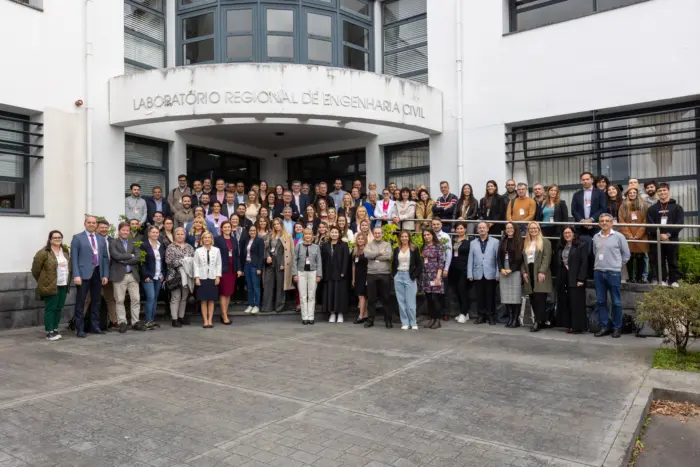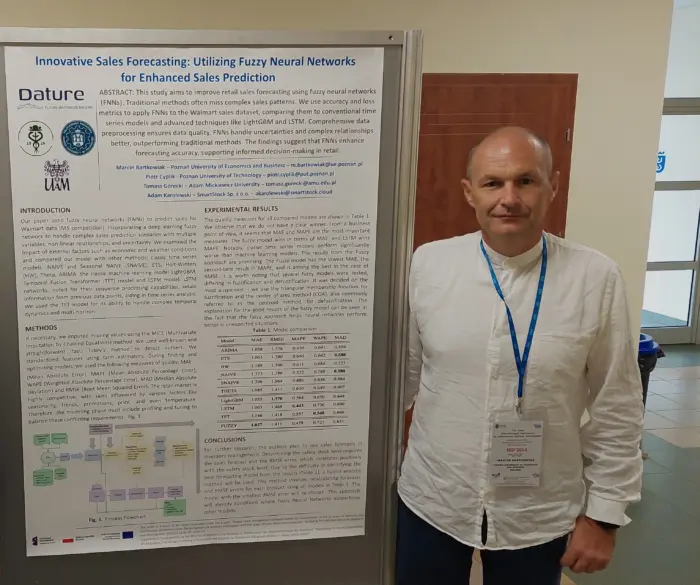Results of the RIGE project

Equity crowdfunding IPOs: Under or overpricing? The case of Poland as an example of quickly catching up economy
Journal: Equilibrium. Quarterly Journal of Economics and Economic Policy Author: Paweł Piotr Śliwiński
Study: Equity crowdfunding IPOs: Under or overpricing? The case of Poland as an example of quickly catching up economy,
The study aimed to: (i) assess the effectiveness of company debuts that secured funding (and consequently conducted their IPOs) through equity crowdfunding (ECF) platforms, and (ii) identify the key determinants of ECF-based IPO performance.
The research sample included all 19 stock market debuts of companies that conducted IPOs via equity crowdfunding platforms in Poland up until the end of 2022.
The model testing the potential determinants of IPO performance was based on linear regressions to analyze the relationship between the dependent variable, which represents IPO undervaluation relative to the opening stock price on the first trading day, and independent variables selected from a set of potential explanatory factors.
Key Findings:
- Over the three-year period (2020-2022), 79 new companies entered the Polish stock market. 62 of them (78.5%) debuted on NewConnect, the alternative market dedicated to small and medium-sized enterprises (SMEs). 17 companies (21.5%) debuted on the main regulated market of the Warsaw Stock Exchange (WSE).
- More than one in four companies (18 out of 62) that debuted on NewConnect conducted their IPO through equity crowdfunding platforms.
- IPOs conducted via crowdfunding in bull markets had an average undervaluation of 51.26% (median: 49.88%). This was higher than IPOs on the main market, where the average undervaluation was 23.38% (median: 11.70%) and non-crowded IPOs on NewConnect in terms of median: 18,33% (mean: 67,08%)
- As market conditions deteriorated, ECF-based IPOs proved to be the least effective. Only 1 in 10 crowdfunded IPOs generated profits for investors purchasing shares through primary offerings (median return: -32.39%).
- The study reveals that crowdfunding IPO success is cyclical, strongly dependent on market conditions. In bull markets, ECF-based IPOs tend to be undervalued, attracting investors with potential high returns. In bear markets, however, ECF-based IPOs are often overvalued, leading to losses for early investors.
Implications of the Study:
This study highlights the growing role of equity crowdfunding in IPOs, especially for SMEs. However, the findings also indicate that investors should be cautious, as crowdfunding IPOs tend to follow stock market cycles. The insights from this research can assist investors, policymakers, and crowdfunding platforms in better understanding the risks and opportunities associated with ECF-based IPOs.

Tax aggressiveness under concentrated ownership: The importance of long-term institutional investors
Journal: Finance Research Letters Volume 65, July 2024, 105541 Authors: Michał Kałdoński, Tomasz Jewartowski
DOI: doi.org/10.1016/j.frl.2024.105541
Title: Tax Aggressiveness of Firms with Concentrated Ownership: The Role of Long-Term Institutional Investors as Shareholders
The research we conducted, based on a sample of several hundred publicly listed companies on the Warsaw Stock Exchange, revealed a positive relationship between corporate tax aggressiveness and the presence of long-term institutional investors in their shareholder structure—such as investment funds, pension funds, and other institutions that invest capital collected from their members into financial instruments.
Tax aggressiveness relates to concepts like tax optimization or tax avoidance—practices that are widespread and, as long as they stay within legal boundaries, should not necessarily be viewed as inherently condemnable. This is what differentiates them from tax evasion, which is illegal. Tax avoidance by companies typically involves leveraging various possibilities in shaping revenue and the cost of earning it to ultimately reduce the tax burden relative to the income generated.
There are many ways to measure tax aggressiveness. In our study, we used a relatively new, specific metric: the difference between the average effective tax rate calculated for a given industry and company size group, and the actual effective tax rate reported by the analyzed firm.
Taking into account the “normal level” of tax avoidance for a company’s industry and size, we provide evidence that tax aggressiveness increases with the share held by independent long-term institutional investors, domestic long-term institutional investors, and long-term institutional investors with relatively large stakes. This relationship also applies to family-owned companies that include institutional investors in their ownership structure.
Our findings suggest that ownership structure influences a company’s tendency to engage in tax avoidance.

Different paths of state institutions development – convergence and divergence in post-socialist countries
Journal: Ekonomista, ISSN 0013-3205, e-ISSN 2299-6184 Authors: Bartosz Totleben, Dawid Piątek
DOI: 10.52335/ekon/200143
Title: Diverging Development Paths of State Institutions – Convergence and Divergence in Post-Socialist Countries
The political transformation of Central and Eastern European countries following the collapse of communism represents one of the most significant socio-economic events of the late 20th century. After a period of central planning, these countries began transitioning to market economies and democracies, which entailed deep institutional reforms. This article analyzes the processes of convergence and divergence of state institutions in 18 countries from the region, comparing them with the EU-15 countries. The key research questions concerned the extent to which these countries have approached the institutional standards of developed market economies and their level of socio-economic development.
To assess institutional quality, an index was developed incorporating political freedom, economic freedom, and governance quality. Sigma-convergence analysis and cluster analysis were used, allowing the identification of five groups of countries with different institutional development trajectories. Estonia and the Czech Republic showed significant progress toward convergence with Western Europe, while Russia and Belarus diverged from democratic standards, showing a trend toward authoritarianism. Poland belongs to the group of countries that quickly approached the institutional standards of the European Union, although the pace of convergence slowed after EU accession. Among Central and Eastern European countries, differences in the pace and direction of change were observed—some states accelerated reforms before joining the EU, while others experienced stagnation or regression in the years that followed.
The analysis showed that although most countries in the region have seen improvements in institutional quality and socio-economic indicators, significant disparities remain. The smallest differences compared to the EU-15 are observed in countries with a stable trajectory of convergence, while those with weaker institutions developed more slowly. The study’s results indicate that institutional reform trajectories are crucial for long-term economic and social development.
Although the systemic transformation allowed post-socialist countries to integrate into global economic processes, many still face challenges related to governance quality and development levels. The article emphasizes that future research should focus on the factors influencing the sustainability of reforms and the role of society and political elites in shaping institutional development paths.

Challenges of Sustainable Entrepreneurship – The Case of Vegan and Vegetarian Restaurants
Author: dr hab. Milena Ratajczak-Mrozek, prof. UEP
This study focuses on the conceptualization of sustainable entrepreneurship, aiming to develop a comprehensive profile of a sustainable entrepreneur.
Research Methodology
A qualitative study was conducted through interviews with 20 entrepreneurs operating vegan and vegetarian restaurants in Poznań. The research examines:
- The specifics of running a plant-based food business
- Motivations and competencies of entrepreneurs
- Collaboration with other entities
- Sustainability-related aspects of business operations
The interviews were transcribed and analyzed using Maxqda software, which facilitates the identification of research patterns and themes.
Context and Importance
The consumption and promotion of plant-based food are crucial, as meat production has a significantly greater environmental impact. It contributes to:
- Higher greenhouse gas emissions
- Excessive water consumption
- Soil pollution
Vegan and vegetarian restaurants serve as examples of sustainable entrepreneurship, integrating environmental responsibility with business operations.
Key Challenges Faced by Vegan and Vegetarian Entrepreneurs
- Higher costs – Plant-based ingredients are more expensive than meat products, increasing operating expenses.
- Consumer perception – The term “vegan” carries negative connotations for some consumers, potentially reducing demand.
- Higher consumer expectations – Vegan customers demand higher quality and ethical standards compared to meat-eaters.
- Industry-wide challenges – Entrepreneurs face inflationary pressures and gastronomic sector difficulties, regardless of cuisine type.
Collaboration and Business Relationships
A crucial aspect of success in sustainable entrepreneurship is building relationships with industry stakeholders. However, the study reveals a lack of long-term partnerships among vegan and vegetarian business owners.
- Many entrepreneurs do not prioritize long-term relationships with suppliers or competitors.
- A limited business network restricts access to resources, knowledge, and know-how.
- Collaboration with competitors could foster innovation, while strong supplier relationships ensure stability in crisis situations.
- However, resource scarcity forces entrepreneurs to work with suppliers who may not share sustainability or animal welfare values.
One major factor limiting collaboration is entrepreneurs’ personality traits, such as:
- A strong need for independence
- Fear of cooperation
- Reluctance to share information
Conclusion
The study highlights both the potential and challenges of sustainable entrepreneurship in the plant-based food sector. While vegan and vegetarian businesses contribute to environmental sustainability, their success is often hindered by high costs, consumer perception, and limited collaboration within the industry.

Precarious employment in social enterprises: determinants and challenges through the lens of historical institutionalism
Journal: Agricultural Economics-Zemedelska Ekonomika, ISSN 0139-570X, e-ISSN 1805-9295 Authors: Paweł Mikołajczak, Weronika Szpak, Anna Waligóra
Social phenomena are often interpreted through the lens of historical institutionalism, within which critical moments or turning points shape the basic contours of social and economic life. An analysis of international research on labor markets clearly indicates that the problem of precarious employment is global. Researchers distinguish exogenous shocks that play a key role in the occurrence of precarious employment. In social terms, it is commonly defined as a job that accumulates several unfavorable characteristics of job quality, such as job insecurity, inadequate income for qualifications, and limited worker rights and weak social protection. The social groups most vulnerable to precarious employment are mainly the poorly educated, migrants, young people and women. Workers suffering from precarious employment often find themselves in situations where their governments and employers do not provide access to sufficient social and health protection, which can be associated with a variety of negative health consequences, such as chronic stress or mental and cardiovascular diseases. This article aims to show how critical moments in recent world history – the Covid-19 pandemic, the Fourth Industrial Revolution and migration crises – have affected precarious employment in social enterprises and, more broadly, in the third sector. The results of analyses of international reports by global agencies such as the International Labor Organization, the World Economic Forum and the Organization for Economic Cooperation and Development suggest that labor market insecurity will be one of the most important challenges of today. Although social enterprises are making efforts to mitigate the effects of precarious employment by helping those affected, they are themselves vulnerable to external shocks. Facing numerous barriers to operations, they are limited in their ability to hire full-time employees.

The Impact of Technological Innovations on the Sustainable Operation of Packaging Industry Enterprises in Poland
Author: dr inż. Krzysztof Wójcicki
Research Objective
The main goal of this study is to examine the impact of technological innovations on the sustainable functioning of packaging industry enterprises in Poland. The insights gained will help understand how selected packaging manufacturers use digital technologies to optimize production while improving societal well-being. Additionally, the study evaluates the role of digitalization in promoting sustainable production management.
Specific Objectives
- Assess the extent to which sustainable development strategies are implemented by packaging companies in Poland.
- Identify industry expectations regarding digital technologies and explore opportunities for improving production and distribution processes.
- Evaluate the impact of Industry 5.0 on the development of innovative packaging solutions, including smart packaging and personalized packaging.
- Identify legal, technological, and social barriers limiting the industry’s transformation.
- Analyze collaboration between companies, research institutions, and technology startups in the sector’s digital transformation.
Research Methodology
The study involved a survey conducted among organizations producing plastic, paper, and cardboard packaging in Poland. A total of 82 companies from across the country participated.
To achieve the research objectives, advanced statistical methods will be employed, including:
- Factor analysis
- Correspondence analysis
- Multidimensional scaling
- Selected statistical tests
The data analysis will be performed using R and Python, leveraging their specialized packages for data processing and statistical analysis.
The study is still in progress.

The Impact of Environmental Engagement on Sustainable Consumption Intentions Motivated by Pro-Environmental Factors Among Generations X and Y
Author: Prof. Aleksandra Gaweł, PhD, DSc The study was conducted through a survey of consumers from Generations X and Y, using a research panel from the Ariadna platform.
The survey consisted of two main sections. In the first section, respondents were asked about their pro-environmental attitudes, including their involvement in environmental protection and their sense of agency in this area. The second section explored respondents’ approach to sustainable consumption, including their willingness to adopt products that incorporate eco-friendly technologies.
Key Findings:
- Human-environment interdependence:
- A majority (74.2%) of respondents believe that humans and the environment are interconnected.
- Nearly half (48.8%) reported feeling good when they engage in activities that benefit the environment.
- Collective responsibility:
- Respondents predominantly agreed that solving environmental protection issues requires collective societal effort.
- 25.8% strongly agreed with the statement that only by working together can society address environmental challenges.
- Sense of personal agency:
- Most respondents reported a moderate sense of agency regarding environmental protection.
- The largest share (35.4%) moderately agreed that they are capable of effectively dealing with environmental problems.
- Willingness to reduce consumption:
- Respondents demonstrated moderate willingness to reduce consumption for environmental reasons.
- 53.0% moderately agreed with the statement that they intend to lower their consumption for environmental protection purposes.
- Openness to green technologies:
- Respondents exhibited moderate openness toward adopting eco-friendly technologies.
- When asked about their intentions to use green technologies, 47.6% expressed moderate willingness.
Conclusion:
The study indicates that while respondents are aware of the interdependence between humans and the environment, this awareness only moderately translates into pro-environmental consumption intentions.
The findings will contribute to a forthcoming academic publication, which is currently under review.

Dr hab. Agnieszka Niezgoda, prof. UEP
Conference Name: ICMarkTech 2024 - Int. Conference on Marketing and Technologies Organizer: Unversity of Azores (Universidade dos Acores) Portugal Date: 5-7 December 2024 Presentation Title: Agent-Based Modeling study on tourists’ decisions upon the sustainable tourism image oftourist destinations
In the marketing of tourist destinations (receptive areas that host tourists), there is growing emphasis on highlighting which sustainable development and sustainable tourism goals are being implemented in these areas. This messaging can enhance the image of the destination, potentially attracting tourists, especially those with pro-ecological attitudes. A key research question arises regarding the influence of this type of communication on the decision-making process of potential consumers.
Due to the lack of empirical data to evaluate the impact of specific marketing messages on tourist decisions, the study employed an advanced economic modeling technique—Agent-Based Modeling (ABM)—to answer the research question: How do the features of sustainable tourism, as reflected in a destination’s image, influence tourists’ decisions to visit that destination?
The simulations were based on a custom-designed system architecture developed for the study, which included decision-making algorithms representing agent behaviors. These agents—virtual representations of tourists—interacted with external environmental agents, simulating real-world decision-making and behavior over time.
Agent-Based Models simulate the behavior of multiple virtual entities, each possessing its own goals, personality traits, and varying susceptibility to external factors, all of which shape their decision-making processes. By analyzing these simulations, researchers can assess how agents’ behavior changes in response to various factors, enabling the verification of behavioral scenarios. This approach provides new insights into the importance of sustainability features in the marketing image of tourist destinations and their impact on tourists’ destination choices.
Co-authors:
Justyna Majewska, Szymon Truskolaski

Determinants of Young Consumers’ Acceptance of Augmented Reality in E-commerce – A Cross-Cultural Perspective
Author: Prof. dr hab. Małgorzata Bartosik-Purgat
The purchase of the MAXQDA Analytics Pro + AI Assist software enabled an in-depth qualitative analysis of data collected during extended focus group interviews. These interviews were conducted across six groups (two interviews each in South Korea, Poland, and the United States). The study explored young consumers’ acceptance of augmented reality (AR) during online shopping, using eyewear as the product under examination. The focus group study identified both similarities and differences among cultural groups regarding the motivations and risks associated with using AR for online shopping. The most significant differences were noted in hedonistic motivation, while similarities emerged concerning perceived risks and ease of use of the technology.
MAXQDA facilitated the coding of results based on interview transcripts and the generation of visual representations of the findings, with breakdowns by country and participant gender. Code clouds were used to illustrate the results, playing an integral role in the analysis and subsequent academic publications.
Study outcome:
Publication:
Bartosik-Purgat, M., & Rakowska, W. (2024). Gender in acceptance of augmented reality in e-commerce: An international perspective, International Entrepreneurship Review, 10(4), 113-127. DOI:10.15678/IER.2024.1004.08.

Project Management Efficiency in the Construction Industry
Author: dr Marcin Soniewicki
This quantitative study was conducted in collaboration with Brno University of Technology.
The objective of the research was to analyze the factors influencing the success of construction projects in terms of cost, completion time, and quality. The study was conducted among three respondent groups involved in construction projects: investors, designers, and contractors. A total of 171 responses were collected through an online questionnaire, using a 7-point Likert scale.
The study found that both advanced communication and change management, as well as effective and precise project supervision, positively impact project success concerning the three key factors—time, cost, and quality—aligned with the “iron triangle” concept.
The findings indicate that companies in the construction sector should focus on digital communication practices to effectively manage changes.
Additionally, the research revealed that developing flawless technical documentation for construction projects requires time and proper resource coordination. However, this cost is justified, as high-quality documentation is crucial for project success, and its preparation costs are negligible compared to overall construction expenses.
Two publications containing the results of the study are currently underway.

The Impact of Interactions with Conversational Artificial Intelligence on Beliefs About AI’s Ability to Deceive
Author: dr hab. Tomasz Wanat, prof. UEP
The survey study was conducted in two stages.
The first stage, involving a sample of 120 respondents, aimed to validate research tools and determine the role of social exclusion in the context of biases against artificial intelligence. A survey method was used, and the questionnaire was distributed to participants via the online platform Prolific. The survey contained closed-ended questions, primarily based on previously tested attitude measurement scales found in the literature.
The second stage, conducted with a sample of 330 respondents, aimed to assess the extent to which the frequency and quality of both positive and negative interactions with conversational AI influence biases against AI. Data were collected on Prolific, utilizing the attitude measurement scales validated in the first stage.
The conceptual framework for this study is based on Gordon Allport’s contact hypothesis concerning intergroup prejudice, along with later research summarized in several meta-analyses (e.g., Pettigrew & Tropp, 2006, 2013). These studies identify three main mediating factors in the relationship between contact and prejudice: anxiety, knowledge, and empathy. In the context of AI-related research, this framework was expanded to include anthropomorphism (as a variable preceding empathy). Bias against AI was operationalized as beliefs about AI’s ability to deceive.
Key Findings:
- Socially excluded individuals perceive AI as more likely to engage in deception compared to those less at risk of exclusion.
- Aversion to AI strengthens prejudices against AI.
- Individuals with more frequent positive interactions with conversational AI exhibit lower levels of bias against AI (measured as beliefs about AI engaging in deceptive practices), in line with Allport’s contact hypothesis.
- Empathy mediates the relationship between positive interactions and reduced prejudice, consistent with Pettigrew and Tropp’s contact model.
- Knowledge and anxiety do not mediate the relationship between positive interactions with AI and prejudice toward AI.
The study will result in two publications, which are currently under review.

Dr Marcin Bartkowiak
Conference Name: The 32nd International Conference on Information Systems Development (ISD 2024) Organizer: Uniwersytet Gdański Date: 26-28 August 2024 Presentation Title: Innovative Sales Forecasting: Utilizing Fuzzy Neural Networks for Enhanced Sales Prediction
Artificial Intelligence and Sales Forecasting: Applications of Machine Learning
The modern business world faces the challenge of predicting the future based on uncertain and complex data. In response to these needs, advanced machine learning methods are increasingly being employed, revolutionizing sales forecasting. One of the latest advancements in this field is the combination of fuzzy logic and neural networks.
The research conducted focused on analyzing and evaluating the effectiveness of these techniques in real-world business scenarios. Fuzzy logic, as a method that enables a more flexible approach to uncertainty, was applied in the forecasting model to support neural networks in unexpected and dynamic situations. This system was tested using real sales data, allowing for the verification of its practical utility.
The results proved to be highly promising. We demonstrated that integrating fuzzy logic with machine learning not only enhances forecasting accuracy but also improves the system’s ability to handle the unpredictability of business processes. The hybrid model was found to be more resilient to changing market conditions compared to traditional approaches.
Contemporary applications of artificial intelligence in economics and business represent a milestone toward more efficient management. Our research confirms that fuzzy logic combined with machine learning is the future of sales forecasting—offering greater precision, adaptability, and effectiveness in the face of uncertainty.
Co-authors: Marcin Bartkowiak, Piotr Cyplik, Tomasz Górecki, Adam Karolewski




